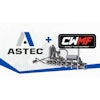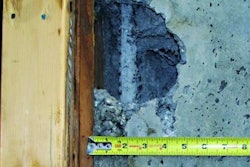By Ron Corun, President, the Association of Modified Asphalt Producers
It's maddening for everyone in the asphalt pavement industry to watch our political leaders continually underfund and neglect the United States' highway system and force our infrastructure into decline. The Interstate Highway System was built more than 50 years ago under the leadership of President Dwight Eisenhower. This visionary highway project helped drive the American economy to prosperity for decades and gave drivers the freedom to travel effortlessly across this great country.
Americans enjoyed the benefits of a highway network unrivaled around the globe. Today, the U.S. infrastructure has fallen from a quality ranking of number one in the world to 23rd, as reported by the World Economic Forum. The American Society of Civil Engineers (ASCE) recently published a report that gave our infrastructure a grade of D (on a scale of A to F). The decline is directly attributable to inadequate funding.
A recent report on infrastructure funding found that China is spending 9 percent of Gross Domestic Product (GDP) on infrastructure and Canada is spending 4 percent of GDP on infrastructure. The US is currently spending 1.7 percent of GDP on infrastructure. In a global economy that demands efficiency to compete successfully, the crumbling American infrastructure is handicapping the potential for economic growth.
Motor fuel user fees (not taxes) are currently the primary funding source for highway funding. They are the fairest form of revenue collection in the U.S. Only users of the highway system pay the fees, and the funds are dedicated to the Federal Highway Trust Fund, which is used only for infrastructure construction and maintenance. Unfortunately, the federal motor fuel user fees are a fixed amount, not a percentage of the fuel price (unlike income and sales taxes), and they have been 18.1 cents per gallon since 1993. Inflation has severely eroded the buying power of the Highway Trust Fund since 1993 and there simply is not enough money available to maintain our roads and bridges in good condition.
Maintaining our current system is a priority for transportation agencies across the country, but building infrastructure additions and improvements that will ease congestion and improve efficiency are on hold indefinitely. Unemployment in America today is above 9 percent, but unemployment in the construction industry is almost 20 percent.
Adequate transportation funding will not only put hundreds of thousands of construction workers back to work (jobs that cannot be exported) - it will also improve the efficiency, reliability and safety of our highway system. Increasing the motor fuel user fees or finding a suitable alternative is the only solution to the infrastructure dilemma in America.
The current level of U.S. debt is intolerable, and funding highway improvements with deficit spending is not acceptable to anyone. We need our elected officials to act as leaders and solve our problems, rather than responding only to emergencies and following today's polling data before making any decisions.
President Eisenhower pushed the original Interstate Highway Bill through Congress without the support of the American people. He did so because he had a vision and knew it would be good for America. Where would we be today if Ike had waited until the public polls showed support for an Interstate Highway System? Imagine the United States of America without an Interstate Highway network - what would our economy look like? Democrats and Republicans must work together to fund a robust six- year highway bill now!
Make your voice heard and let your representatives know how desperately our industry and the country need it.
Ron Corun is president of the Association of Modified Asphalt Producers (AMAP). Founded in 1997, AMAP is a national association of companies dedicated to informing owners, contractors and specifying agencies about the performance and economic benefits of modified asphalt binders for bituminous pavements. The association serves as a consolidated voice on issues pertaining to modified asphalt, encourages the use of higher performing binders, evaluates and communicates advancements in modified asphalt technology and promotes the standardization of asphalt binder testing procedures.



















